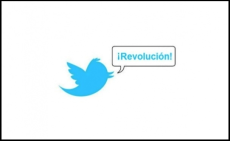The CPD Blog is intended to stimulate dialog among scholars and practitioners from around the world in the public diplomacy sphere. The opinions represented here are the authors' own and do not necessarily reflect CPD's views. For blogger guidelines, click here.

Professor Robert Albro on the intersections between diplomacy, technology, and social media.

Frameworks for cultural diplomacy in the U.S. are often too narrow and too broad.
Once again the debate about the arts and their relationship to the economy has been enjoined, this time in the UK. The terms are by now entirely familiar, and certainly loom in any discussion of the “value” of the arts in the U.S. as well. This is particularly true for the U.S. during recessions and periods of fiscal austerity.
This past week the Washington Post ran a story about the troubles of Russian lawmaker Dimitri Gudkov, assailed by his government for having the temerity to visit the U.S. and address U.S.-Russian relations on Capitol Hill. As the short article explained Gudkov was in the U.S.
Stephanie Stallings recently suggested that creative collaboration is a useful model for cultural diplomacy. She is definitely onto something. Circumstances have changed around the work of diplomacy. Publics are now much less distant, more assertive, and actively engaged participants in the making of their encompassing cultural worlds.
Since at least the late 2000s, I have been observing – sometimes organizing, and sometimes participating in – diverse forums featuring different combinations of politicos, policy decision-makers, academics, and applied practitioners, which have broached the relationship between “culture” and “security,” sometimes in overlapping but often in notably different ways. At times, the purpose is to ascertain how new cultural developments might disrupt established security goals.
Amy Zalman recently proposed that “soft power” – as a conceptual frame for understanding global politics – is too narrow and has outlived its usefulness. Her provocation generated fruitful responses and suggests that we might be ready to stop treading water and move beyond our decade-long fixation with the term to new and more constructive places.
While taking part in an energetic three-day convening at Georgetown University dedicated to “Global Performance, Civic Imagination, and Cultural Diplomacy,” it became clear that the meeting was itself evidence for the continued emergence of a global network linking artists, performers, cultural policy makers, human rights activists, social justice advocates, academics, diplomacy practitioners, and others in international affairs, all variously pursuing new intersections of the arts with... >
Pages
POPULAR ARTICLES
-
June 5
-
June 18
-
June 6
-
June 5
-
June 19
-
May 15
-
June 11
-
June 5
Featured Blogger
Join the Conversation
Interested in contributing to the CPD Blog? We welcome your posts. Read our guidelines and find out how you can submit blogs and photo essays >.








